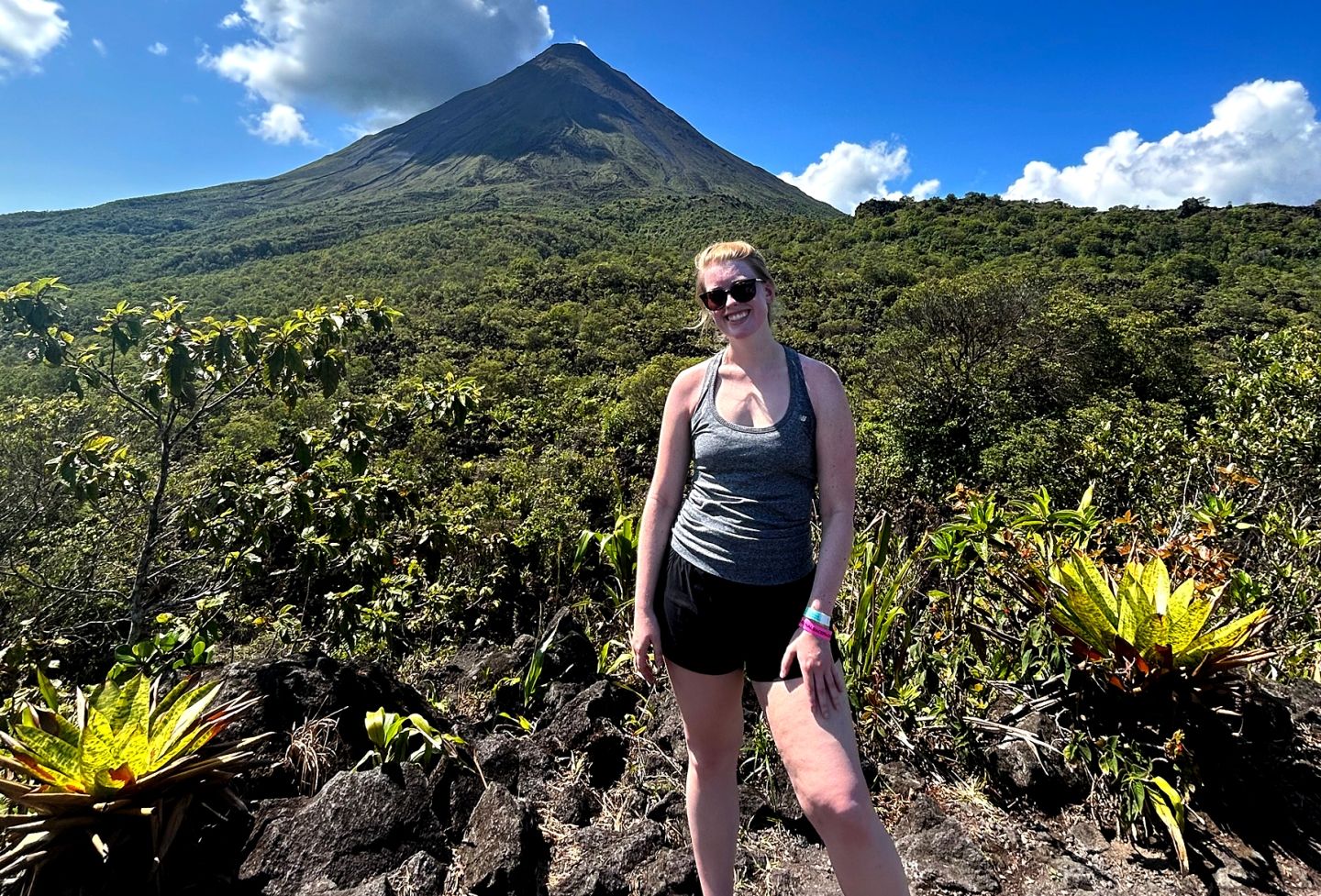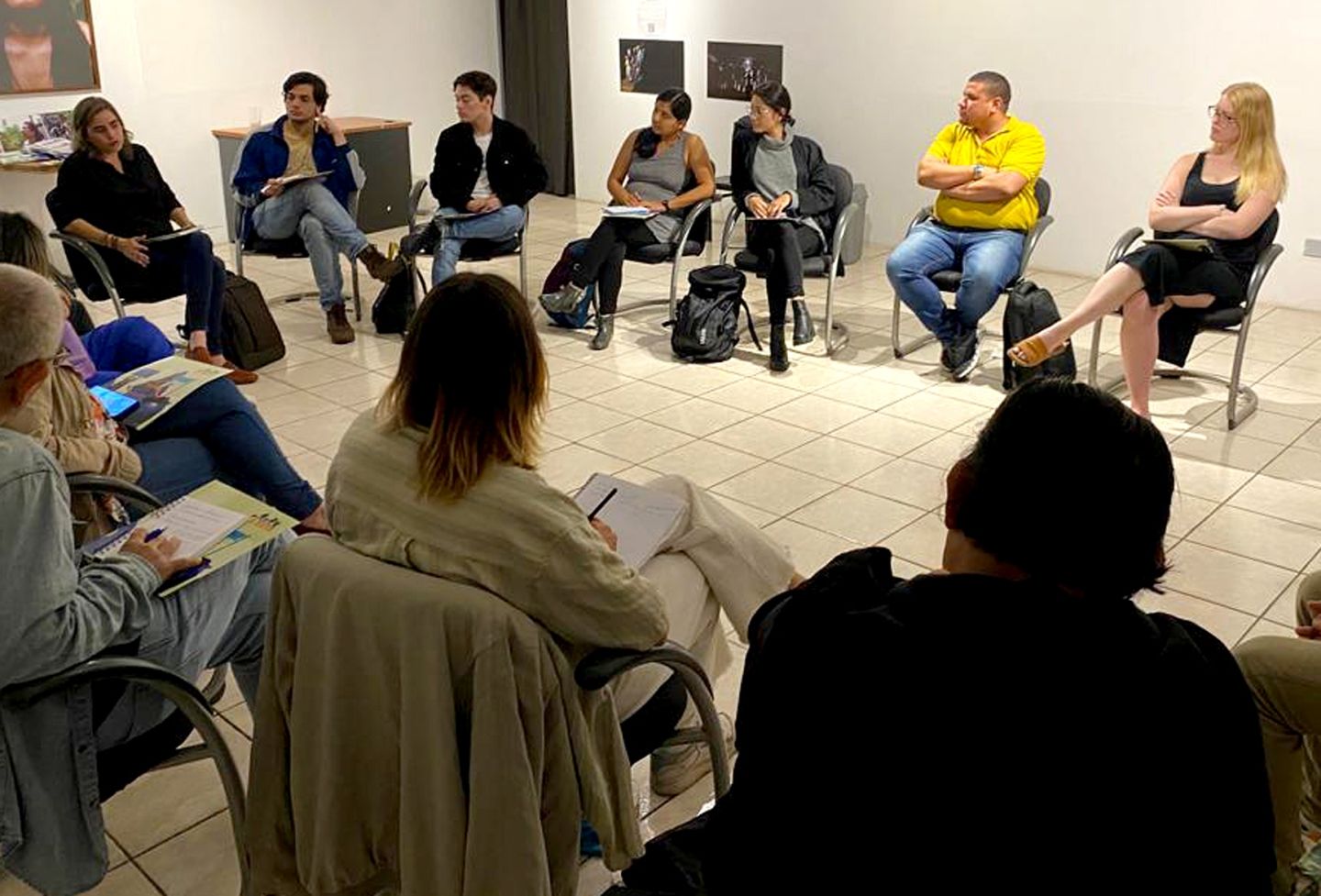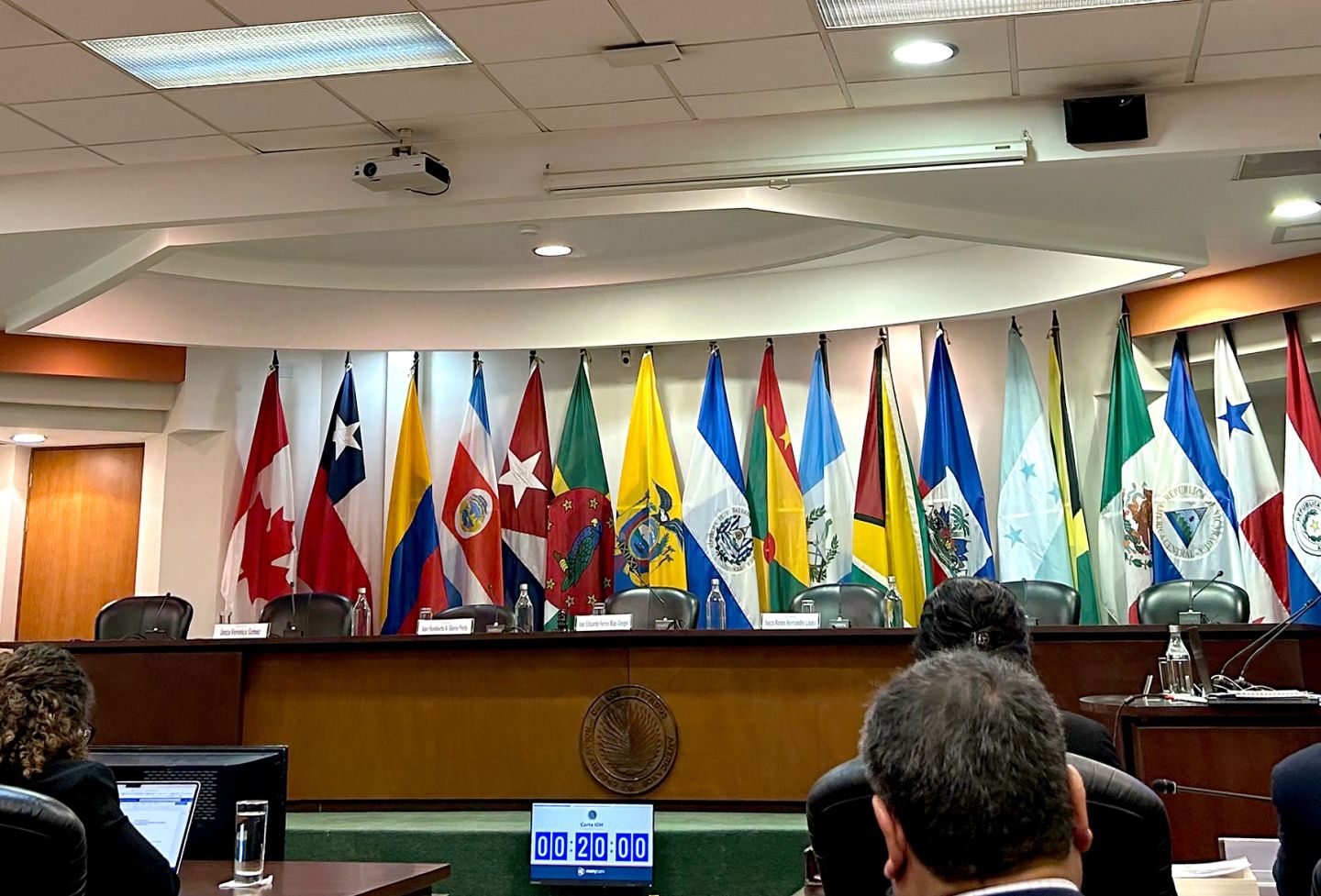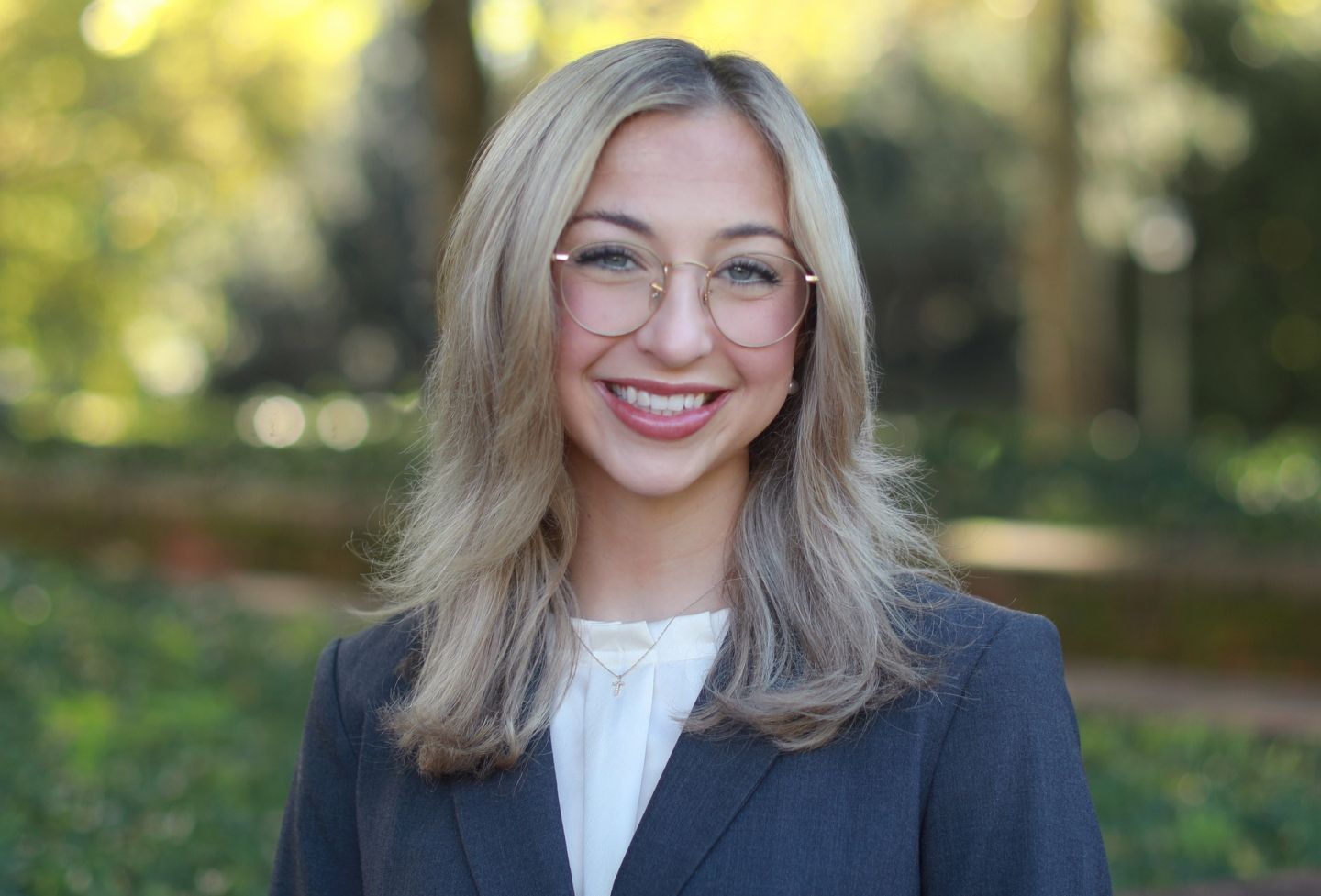University of Virginia School of Law student Lillie Stephens ’25 worked in San José, Costa Rica, this summer as a Monroe Leigh Fellow in International Law. She writes here of her trip in an occasional series, Postcards from Abroad, featuring reports from students on international travel studies.
When you mention Costa Rica in the United States, the images that pop up are often of ziplining through the rainforest canopy, surfing or the “pura vida” attitude we’ve heard about through tourism. But thanks to the presence of the Inter-American Court of Human Rights and a strong civil society sector, Costa Rica’s capital, San José, is also one of the human rights centers of the Western Hemisphere. With the support of the Monroe Leigh Fellowship, I had the opportunity to spend my summer interning at one of the preeminent human rights organizations in the Americas, the Center for Justice and International Law.
CEJIL is an international human rights organization that advocates for justice, liberty and dignity for the inhabitants of all countries in the Western hemisphere. They use strategic litigation and a variety of advocacy tools to defend women, indigenous groups and human rights defenders, among others. Today, CEJIL carries the largest case load of any organization before the Inter-American Human Rights System, and they have litigated some of the landmark cases in the system. The San José office, where I interned, covers cases and issues in Central America and Mexico.
I interned with the Human Mobility Project, which uses strategic litigation, advocacy and communication to advocate for the rights of all people in a situation of human mobility [cross-border migration] in the Mesoamerican region. I researched and drafted letters and briefs to be sent to the Inter-American Commission on Human Rights and the Inter-American Court of Human Rights. I also drafted memos that aided in the formulation of CEJIL’s legal strategy on current issues in human mobility. Through this internship, I witnessed firsthand how a civil society organization can utilize regional and global mechanisms to advocate for human rights. For instance, I wrote a letter to the commission requesting that they solicit information from a state on a current issue in human mobility. I quickly got to see the Inter-American system in action: We received a personal response from a commissioner within a week, and the story appeared in an international news outlet a couple of weeks later.
On the weekends, I explored the natural beauty and biological diversity that Costa Rica is famous for: I visited volcanoes and waterfalls; tried out ziplining, rafting and snorkeling; and saw crocodiles, sloths and howler monkeys up close.
I have been exploring my interest in human rights and international law through college, my master’s degree in migration studies and my studies at UVA Law, so it was exciting to see how the legal procedures I have learned about in the classroom can actually work to bring justice to victims of human rights violations. During the internship, I was glad I had taken Professor Mila Versteeg’s course in International Human Rights Law during my 1L spring semester, because I was already familiar with the United Nations and regional human rights structures I was working with every day at CEJIL. Back at UVA for 2L, I am excited to take the lessons I have learned this summer and apply them in the International Human Rights Law Clinic and the Human Rights Study Project.
Another benefit of interning in the Mesoamerica office was being able to take advantage of San José’s status as a human rights capital of Latin America. I attended events such as a public hearing at the Inter-American Court, a workshop organized by UNHCR, and RightsCon, the world’s leading summit on human rights in the digital age. I also had the opportunity to improve my professional Spanish skills by working entirely in Spanish, which I had prepared for during 1L by taking Professor Camilo Sánchez’s class Spanish for Public Service Lawyers.
I am grateful to have had the support of the Monroe Leigh Fellowship to make this experience possible. ¡Pura vida!

Hanging bridges at Monteverde

Arenal Volcano

A workshop on climate migration organized by CEJIL in San José

Cerro Pinocho, Monteverde, in the Guanacaste Province

Stephens listened to witness testimony at a public hearing for a case at the Inter-American Court of Human Rights.
Founded in 1819, the University of Virginia School of Law is the second-oldest continuously operating law school in the nation. Consistently ranked among the top law schools, Virginia is a world-renowned training ground for distinguished lawyers and public servants, instilling in them a commitment to leadership, integrity and community service.


